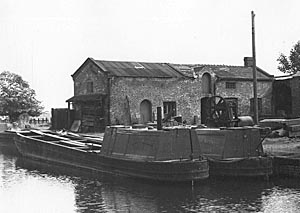
|
CARRIERS OF GOODS As noted in the introduction, Staffordshire’s geographical position between important trading centres, both cities and ports, meant that several major road and canal routes passed through the county. In particular, the canals became essential to the safe conveyance of fragile pottery products, and their building had been promoted locally by the major pottery manufacturers in the eighteenth century. Entrusting a cargo to someone else was at times a risky business, and there are many signs of frustration and bad-feeling. If goods were stolen or damaged in transit then the supplier would suffer financially, as goods were rarely paid for in advance. On the other hand, if the carrier suffered an accident, he might find himself greatly out of pocket. Another financial aspect is revealed in the various tolls, licences and duties that were payable for use of the roads, and for the sale of some types of goods. For instance, customs and excise officers were involved in supervising the transport of salt which was produced locally within Staffordshire, and also transported from neighbouring Cheshire. There was also local legislation in force controlling some aspects of transport, and there are many cases in the Quarter Sessions papers relating to various offences. Examples of prosecutions include negligence at canal locks or bridges, unloading too close to a bridge, jamming a boat against another to cause an obstruction, navigating a boat without anyone attending the horse, stopping a boat or a cart for longer than was necessary to unload, and allowing too many people on a public stage coach above the limit specified on the licence. Theft of goods in transit also appears to have been quite common. Not all were opportunistic: there were prosecutions for theft of grain or spirits involving a siphon. Boats were also an easy means of conveying the stolen goods elsewhere. In our section relating to metal production, you can also read about one businessman’s problems with transport, and he referred to “villainous water men”. This attitude explains why one boatman was implicitly accused of theft, as shown in a sequence of bad-tempered correspondence in this section. |
